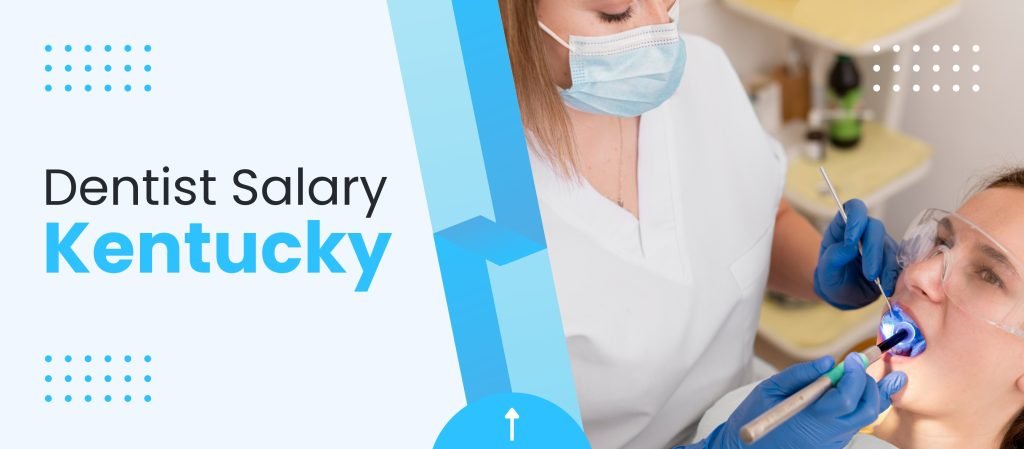“How Much Do Dentists Make”
💰 How Much Do Dentists Make? A Complete Breakdown
If you’ve ever visited the dentist and wondered, “How much do dentists make?” — you’re not alone. Dentistry is often seen as a high-paying profession, and for good reason. With years of education, hands-on skill, and responsibility for people’s health, dentists are well-compensated. But exactly how much money do dentists make in the U.S., and what factors affect their earnings?
In this guide, we’ll break it all down — from average salaries and top-paying states to the different types of dentists and what they earn. 🦷
📊 Average Salary of a Dentist in the U.S.
According to the U.S. Bureau of Labor Statistics (BLS), the average salary for a dentist in the United States is approximately $180,000 to $210,000 per year. That’s nearly $90 to $100 per hour!
However, this number can vary significantly depending on:
- Experience level
- Type of practice
- Location
- Specialization
Dentists who run their own private practice tend to make more than those who work for a clinic or dental chain, but they also have higher expenses to manage.
🧑⚕️ Different Types of Dentists & Their Salaries
Not all dentists earn the same. Here’s a look at how much various dental specialties make:
| Dental Specialty | Average Annual Salary |
|---|---|
| General Dentist | $170,000 – $200,000 |
| Orthodontist (braces expert) | $230,000 – $300,000+ |
| Oral Surgeon | $250,000 – $400,000+ |
| Periodontist (gum specialist) | $210,000 – $300,000 |
| Endodontist (root canal) | $220,000 – $300,000 |
| Pediatric Dentist | $180,000 – $250,000 |
| Prosthodontist (implants) | $190,000 – $250,000 |
💡 Tip: Specialists typically earn more because of their advanced training and the complexity of the procedures they perform.
🌎 Highest-Paying States for Dentists in 2025
Location plays a huge role in dentist salaries. Some states offer significantly higher pay than others, often due to demand, cost of living, and availability of dental professionals.
Here are some of the top-paying states for dentists:
- Delaware – $280,000+
- North Dakota – $270,000+
- Alaska – $260,000+
- Rhode Island – $250,000+
- New Hampshire – $240,000+
In contrast, dentists in states like Mississippi, West Virginia, or New Mexico might earn closer to $160,000 – $180,000 on average.
📍 Urban vs. Rural: Dentists in rural areas often earn more due to higher demand and fewer competitors, though urban practices may see higher patient volumes.
🎓 Does Experience Impact How Much Dentists Make?
Absolutely. Like most professions, dentists earn more as they gain experience:
- New dentists (0–2 years): $120,000 – $150,000
- Mid-career (3–7 years): $180,000 – $220,000
- Experienced (8+ years): $220,000 – $300,000+
Dentists who own their practice and build a loyal patient base can see their income grow significantly over time.
🏢 Private Practice vs. Corporate Dentistry
Dentists generally have two options when it comes to work settings:
🏥 Corporate or Group Practices:
- Often provide stable income and benefits
- Average salary: $130,000 – $180,000
- Less overhead, but also less freedom
🏠 Private Practice (Owner/Partner):
- Can earn $250,000 or more, depending on success
- Responsible for business costs, staff, marketing
- More autonomy and long-term earning potential
Many dentists start in corporate settings before transitioning to private practice once they gain experience and patient trust.
💼 Other Income Factors
There are a few more things that can influence a dentist’s income:
- Number of patients seen per day: More patients = more revenue
- Types of services offered: Cosmetic and implant procedures tend to bring in higher earnings
- Business acumen: Dentists who market well and manage costs efficiently often outperform their peers
- Reputation & online reviews: A top-rated dentist on Google or Yelp often attracts more clients
📚 What Does It Take to Become a Dentist?
To earn this level of income, dentists go through a lot of education and training:
- Bachelor’s Degree (4 years)
- Dental School (DDS or DMD) – another 4 years
- Residency or Specialization (optional) – 2 to 6 more years
In total, becoming a specialized dentist could take up to 10–12 years. Plus, dental school can cost over $200,000, so many dentists start their careers with significant student debt.
📈 Job Outlook for Dentists
The demand for dental services continues to grow. According to the BLS, dentist employment is expected to grow 4–6% through 2032, which is about as fast as the average for all jobs.
Factors fueling demand include:
- An aging population needing more dental care
- Growing awareness of oral health
- Cosmetic dentistry trends (whitening, veneers, aligners)
🧠 Fun Fact: The average dentist works about 35–40 hours a week, often with flexible schedules and long weekends.
🏁 Conclusion: Is Dentistry Worth It?
So, how much do dentists make? The short answer: a lot — especially with experience and specialization. While becoming a dentist requires years of schooling and a significant investment, the long-term financial rewards are substantial. Whether you’re considering dental school or just curious about the career, dentistry offers a stable, well-paying, and respected profession.
💬 If you’re passionate about healthcare, enjoy working with people, and have a keen eye for detail — dentistry might just be the perfect fit.
😊
